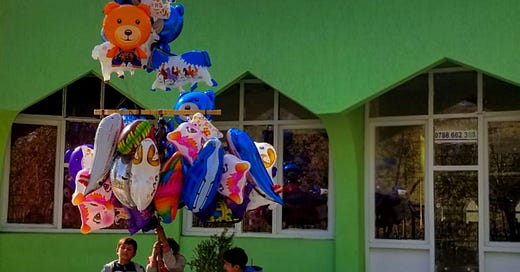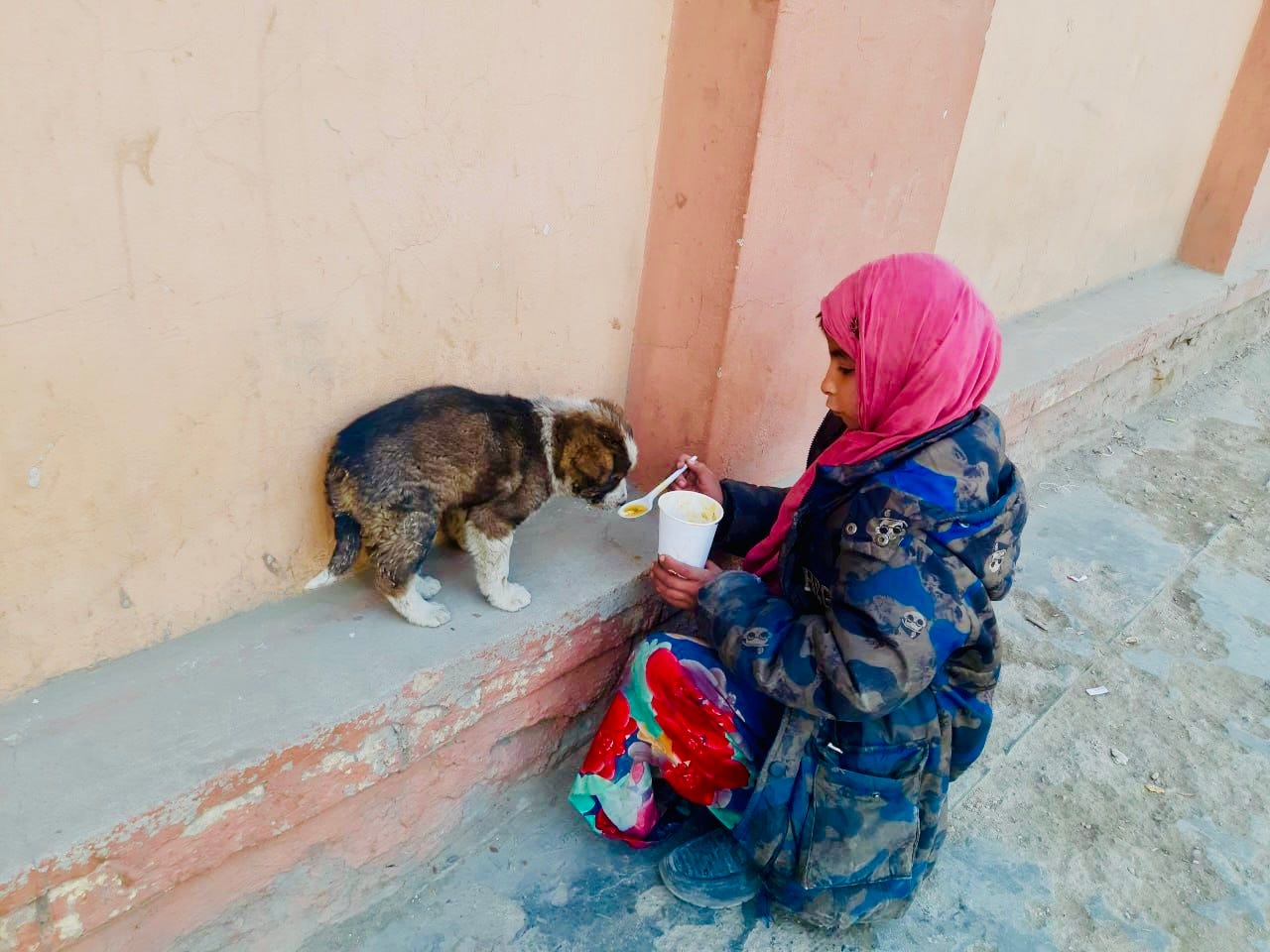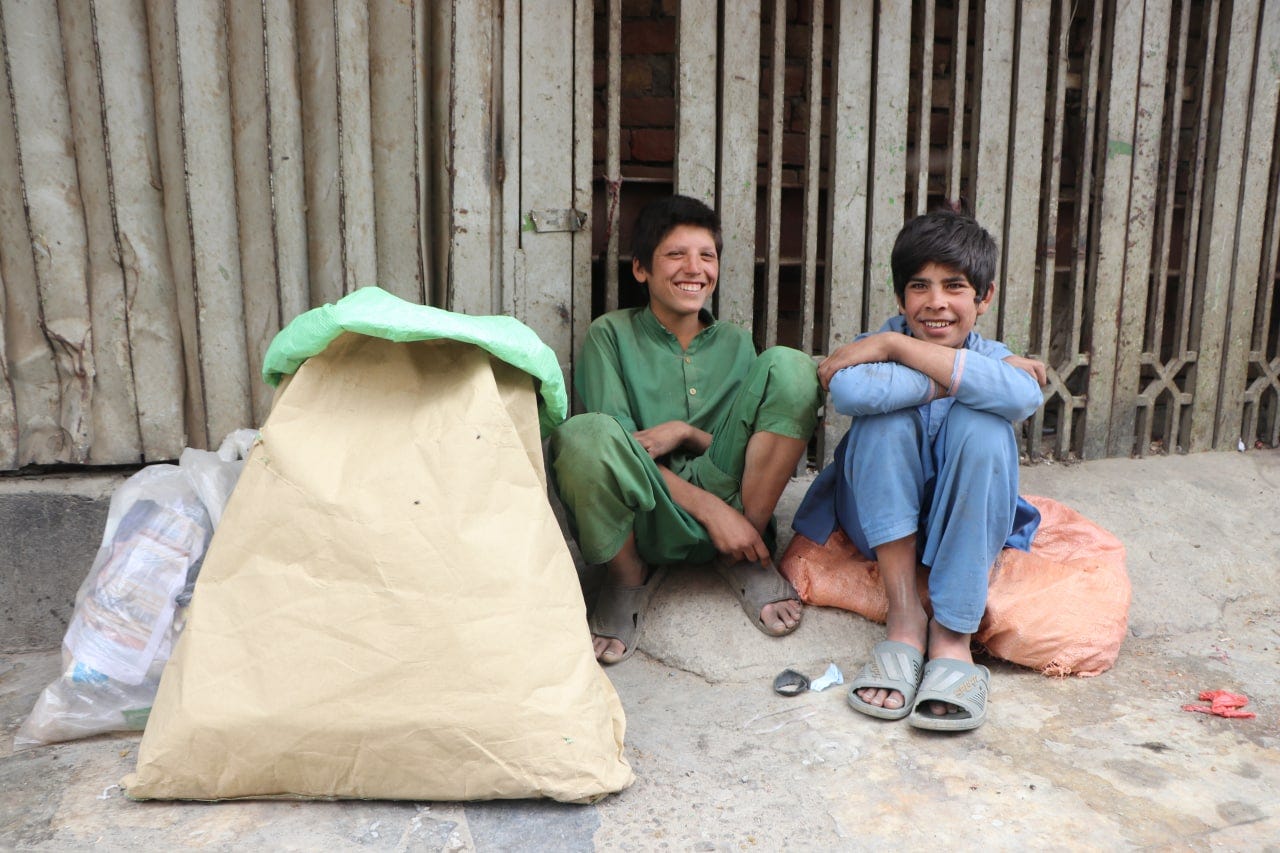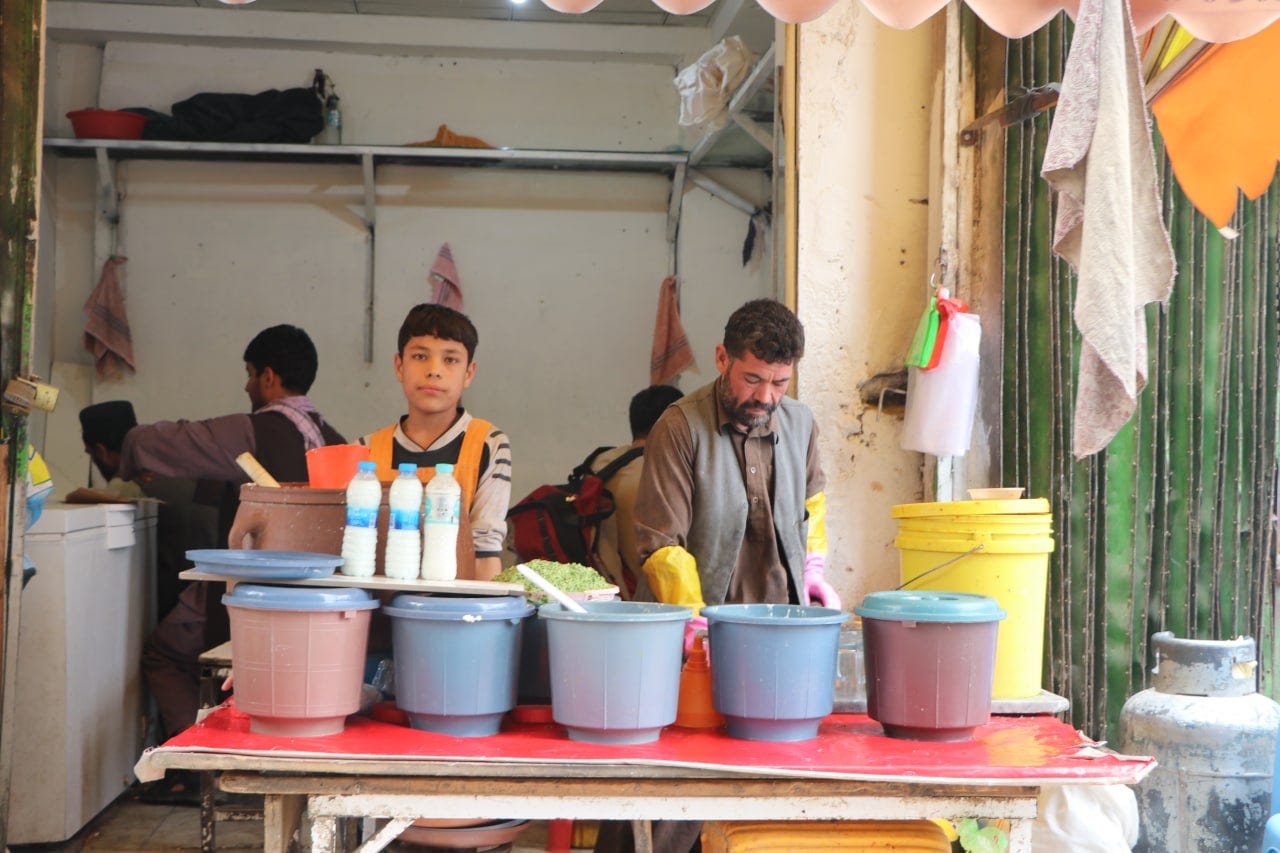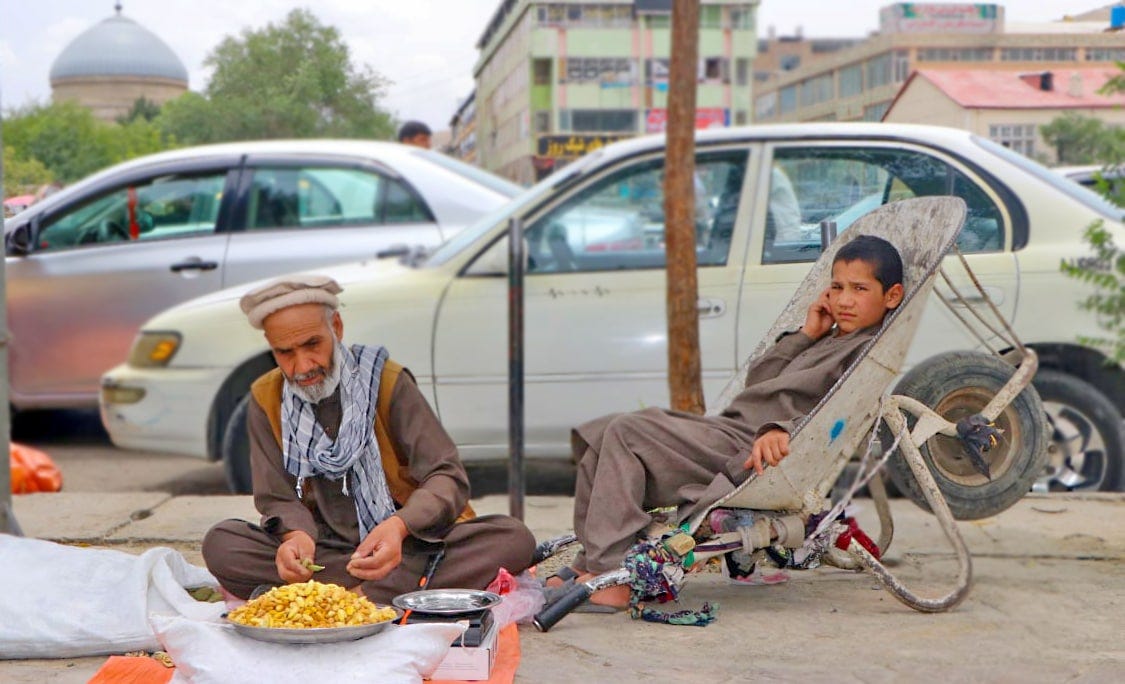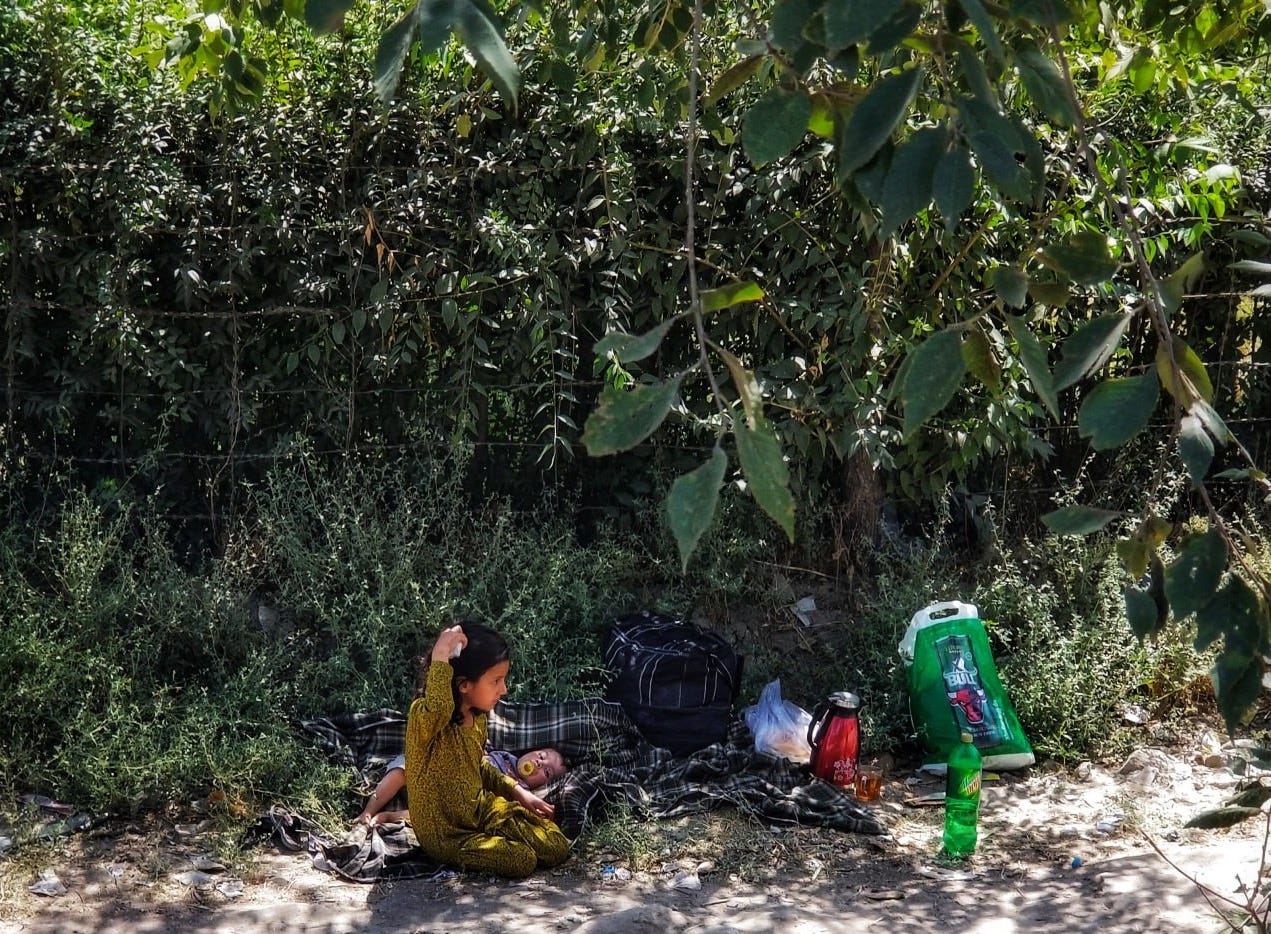Afghanistan: what about the children?
Mursal Sayas depicts childhoods shattered by violence.
Note: The views expressed in this article are solely those of the author and do not necessarily reflect those of other involved parties.
To read this article in French:
Among the laws repealed by the Taliban since August 15, 2021 were numerous measures designed to protect children. Forced and early marriages, sexual abuse in schools and religious institutions, recruitment into the security forces... Afghanistan is now experiencing an upsurge in violence against children, accompanied by a sharp rise in the suicide rate among young people. These phenomena are compounded by the collapse of health systems, the proliferation of radical religious schools, widespread poverty and malnutrition, and the exclusion of girls from education.
With a series of photos by Sahar Sayas, a photojournalist based in Germany et sister of Mursal Sayas.
Forced marriages: the commodification of girls
Many young girls are forced into marriage with members of the Taliban forces. Many are 'sold' for cattle or sums equivalent to a few thousand euros, before they reach the legal age of marriage. In the Kohdastan district, seven-year-old Marwa was betrothed in exchange for fifty sheep. Sent to live with her husband when she was ten, she now has to do household chores, putting an end to her studies.
Others prefer death to this gloomy fate. In Ghor, in the center of the country, a seventeen-year-old girl committed suicide in October 2022 to escape a forced marriage. She took her own life shortly before the ceremony.
Immunity for the clergy
In a report published in November 2023, the NGO ‘Rawadari’ denounces the impunity of members of the religious class who commit physical and sexual violence against children. In Kandahar district, a teacher of a madrasa (religious school) allegedly raped an 8-year-old boy. Members of his family went to the local security center to lodge a complaint, but as soon as the Taliban police learned that the crime had taken place in a madrasa, they refused to deal with the case. The head of the security department advised them to go straight to 'reaching an agreement with the assailant', and to 'forgive him'. The family escalated the complaint to the government, after which the assailant was arrested, and the child taken to hospital to undergo medical examinations and prove his allegations. The hospital officially confirmed the sexual assault. Two days later, the teacher was released.
In a similar case, in March 2024, the mullah of the mosque in the village of Pai Kemer Yar Foulad cut off a child's ear with a knife. No legal action has been taken against him.
Protected from neither violence nor hunger
Under Taliban rule, children become accustomed to violence from an early age. They are often forced to witness executions, stonings, and other brutal punishments inflicted by the Taliban. In some cases, they are even forced to participate by throwing stones themselves.
Rampant famine makes their plight even worse. UNICEF claims that in Afghanistan as a whole, around 10 million children need humanitarian aid to survive. The food crisis of early 2024 has condemned one million of them to acute malnutrition, according to WHO estimates. Because of the lack of food, tens of thousands of children are also forced to engage in hard labor to support their families.
For boys, sexual abuse and forced labor
A large number of boys are hired as drivers or servants for Taliban leaders, or in camps and security posts. In reality, they are recruited for sexual purposes. According to Rawadari, “the majority of children who work as bodyguards, secretaries, staff or drivers for Taliban officials are generally between 14 and 18 years of age, as they are more physically attractive. A number of them are employed unofficially, and paid with 'concession money'” - special sums paid to senior officials and soldiers who have fought since 2001.
In the Ghor province, a young boy employed as a bodyguard of a local official was transported to the hospital after suffering aggravated sexual violence. In another case, an administrator in the north of the country repeatedly raped his ‘bodyguard’, a 15-year-old boy. Denounced by one of his colleagues, he was not subject to investigation, however, and the boy still works in his service.
Rawadari's report also points to administrative manipulations designed to facilitate the employment of young children. In the Farah province, the director of the statistics bureau asked his employees to add two years to the age of children on their identity cards, bringing it up to 16, to remove the legal obstacle to their employment in the security forces.
A sacrificial generation
The fall of Afghanistan to the Taliban led to the collapse of the country's relative stability, and undermined child-friendly institutions and laws. The ban on women's employment further increases poverty, in a country where many households are headed by women who are the sole breadwinners. At least four million children, mostly girls, can no longer attend school.
Misery, the institutionalization of an anti-feminist culture and the installation of a veritable gender apartheid lock today's children into a bleak reality. Unlike their parents, who knew the hope of a different face for Afghanistan, Afghanistan's future society is growing up today with no apparent way out or counter-discourse, handicapping the country's future. Female journalists like myself, far from being an example and inspiration for young Afghan women, are reduced to exile or silence, forced to live and work in secrecy.
Carrying the fight into exile
While December 10 marked Human Rights Day in Afghanistan, children, women, intellectuals, journalists, activists, and so many others are deprived of their most basic rights.
In exile, I continue to fight with all my being, as a defender of these rights, as a journalist, as a writer, and as a mother, also separated from her children, who remain in Afghanistan.
My life in Paris is far from easy. I carry the constant weight of worry and anxiety caused by my distance from my children, the pain of being far from them, and not being able to offer them the maternal love that they deserve. Financial instability, the cost of living, and the struggle to afford rent in one of the world’s most expensive cities add to this burden. Simple joys of life, like cooking a dish that reminds me of home, seem like distant luxuries.
And yet, despite these challenges, I devote all my energy to defending human rights, freedom of expression, political and social justice, and a more equitable world. I do so with the hope that one day, justice will prevail, for me, for all these children, and for the millions of people who remain silenced and oppressed.
Mursal Sayas is an Afghan journalist and activist committed to women's rights. Until the Taliban takeover of Kabul, she worked in radio and television, as well as for the Afghan Independent Human Rights Commission.
She arrived in France in 2021, where she continued her activist career, writing columns for media such as Courrier International. She also heads the association Women Beyond Borders.
In January 2024, she published “Qui entendra nos cris ?” (Who will hear our cries?) published by Éditions de l'Observatoire. Based on testimonies gathered in Kabul, it describes and denounces the persecution of women in Afghanistan.
A version of this text originally appeared in Amnesty International's Children's Rights Commission newsletter n°52, under the title “Être enfant en Afghanistan” (“Being a child in Afghanistan”).

